SPEW has written to the Labour Party asking to affiliate. Peter Manson looks at the background (reproduced from the Weekly Worker)
Those who do not read The Socialist may not be aware that the Socialist Party in England and Wales has applied to affiliate to Labour – a couple of weeks ago the SPEW weekly published correspondence on the matter between Labour’s general secretary, Jennie Formby, and its own leader, Peter Taaffe (September 19).
This is of particular interest, since for more than two decades SPEW insisted that Labour was now just another capitalist party – like the Tories or Liberal Democrats. But in its April 6 letter to Jennie Formby, in which SPEW expressed a wish “to meet with you to discuss the possibility of our becoming an affiliate of the Labour Party”, comrade Taaffe describes the election of Jeremy Corbyn as “the first step to potentially transforming Labour into a mass workers’ party”, standing on an “anti-austerity programme”. So now “all genuinely anti-austerity forces should be encouraged to affiliate”.
While we should, of course, welcome SPEW’s application for affiliation, it is surely pertinent to ask why SPEW stresses the need for an “anti-austerity programme” above all else. It does this even though it correctly states in the same edition of The Socialist: “When the Labour Party was founded, it was a federation of different trade union and socialist organisations, coming together to fight for working class political representation”: ie, nothing so limited as merely opposing spending cuts. I will explore this in greater detail below.
Eventually, on July 27 – ie, almost four months after receiving comrade Taaffe’s original letter – Jennie Formby replied, beginning her letter, “Dear Mr Taaffe”. She pointed out that Labour rules prevent the affiliation of political organisations with “their own programme, principles and policies” – unless they have a “national agreement with the party”. Also groups which stand candidates against Labour are automatically barred: “As the Socialist Party is part of the Trade Unionist and Socialist Coalition, who stood candidates against the Labour Party in the May 2018 elections, it is ineligible for affiliation.”
In his next letter (August 23) Peter Taaffe answered the first point by saying that SPEW wanted a meeting precisely to discuss the possibility of such a “national agreement”. And, in response to the second point, he said SPEW would much prefer to be part of an anti-austerity Labour Party “rather than having to standagainst pro-austerity Labour candidates” (my emphasis). After all, while Tusc had not contested the 2017 general election, in this year’s local elections in England it stood no fewer than 111 candidates against Labour.
Following this, Jennie Formby replied rather more quickly. On August 29 – this time starting her letter “Dear Peter” – she ruled out any meeting: “Whilst the Socialist Party continues to stand candidates against the Labour Party … it will not be possible to enter into any agreement.” Therefore “there can be no discussions”.
As I have stated, it is good news that on the face of it SPEW has at last started to take Labour seriously. But obviously it needs to stop standing against Labour candidates, including those who it says are “implementing savage cuts”. As the Labour general secretary points out, while SPEW says it wants to affiliate in order to support Jeremy Corbyn and help defeat the right, “The leader of a political party is judged by their electoral success. Standing candidates against the Labour Party is damaging not only to local Labour Parties, but also to Jeremy.”
Nevertheless, Jennie Formby’s second letter appears to leave the door open to affiliation by left groups. Such a change would be highly significant, possibly marking a return to the basis upon which Labour was founded in 1900.
Anti-austerity
Let us now examine why SPEW states that what is needed is not a party of all working class formations, including both trade unions and leftwing groups, but one of all “anti-austerity forces”. This can be traced back to the changing face of Tusc itself.
Founded in 2010, Tusc was the successor to the short-lived Campaign for a New Workers’ Party, and both organisations were open in their aim – made explicit in the CNWP’s name – of establishing a new mass party to replace Labour. However, according to the ‘updated’ statement of aims on its website, Tusc was set up “with the primary goal of enabling trade unionists, community campaigners and socialists to stand candidates against pro-austerity establishment politicians” (October 2016).
But that is being economical with the truth. SPEW was, of course, the prime mover within both the CNWP and Tusc and, in the words of central committee member Clive Heemskerk, writing in The Socialist on February 3 2010:
The Socialist Partybelieves that the Labour Party has now been totally transformed into New Labour, which bases itself completely on the brutallogic of capitalism. Previously, as a ‘capitalist workers’ party’ (aparty with pro-capitalist leaders, but with democratic structures thatallowed the working class to fight for its interests), the Labour Party always had the potential to act at leastas a check on the capitalists. The consequences of radicalising the Labour Party’s working class base was always afactor the ruling class had to take into account. Now the situation is completely different. Without the re-establishment of at least the basis of independent working class political representation, the capitalists will feel less constrained in imposing their austerity policies.
While SPEW was clear that this could not come about immediately, the ultimate aim was stated by comrade Heemskerk to be: “A new mass political vehicle for workers, a new workers’ party”. He explained:
For the Socialist Party the importance of Tusc lies above all in itspotential as a catalyst in the trade unions, both in the structures and below, for the idea of working class political representation. It can also play a role in drawing together anti-cuts campaigns, environmental campaigners, anti-racist groups, etc (my emphasis).
So campaigning against cuts, etc was most definitely seen as secondary. First and foremost was the need to lay the basis for a new workers’ party – the nature of which was made clear in the above quote: “working class political representation” primarily for the unions – in other words, a ‘Labour Party mark two’, as we in the CPGB have always called it.
How things have changed since Jeremy Corbyn was elected leader. In her article, posted on the SPEW website following the May local elections, deputy general secretary Hannah Sell writes:
… the support for Corbyn has created the potential for a mass democratic party of the working class, which is desperately needed. If it is not to be squandered, it is vital that there are no more retreats, but instead the start of a determined campaign to transform Labour into a party capable of opposing austerity with socialist policies, in deeds as well as words.
Since SPEW now apparently agrees that the Labour Party itself ought to be transformed, it is unsurprising that it has dropped the call for “a new workers’ party” to replace it – Tusc was supposed to provide the basis for that, remember (always wishful thinking, of course).
So now we find that the purpose of Tusc is suddenly “to stand candidates against pro-austerity establishment politicians” – as if the original aim of “a new workers’ party” had never existed. And, I suppose, that is why comrade Taaffe feels obliged to emphasise the need for all Labour candidates to stand on an “anti-austerity programme” and for the party to welcome “all genuinely anti-austerity forces”. Only if that happened could Tusc shut up shop!
In its statement following the May 2018 election results, Tusc claimed:
This was the most selective local election stand that Tusc has taken in its eight-year history, following the general recalibration of its electoral policy after Jeremy Corbyn’s welcome victory as Labour leader in September 2015.
There was not a single Tusc candidate on May 3 standing in a direct head-to-head contest with a Labour candidate who had been a consistent public supporter of Jeremy Corbyn and his anti-austerity policies. Tusc only stood against rightwing, Blairite Labour councillors and candidates. The Labour candidates in the seats contested by Tusc included 32 councillors who had publicly backed the leadership coup attempt against Jeremy Corbyn in summer 2016, signing a national open letter of support for the rightwing challenger, Owen Smith.
However,
In a situation where Labour is still so clearly two-parties-in-one … – with many local ‘Labour’ candidates standing more ferociously against Jeremy Corbyn than they do the Tories – the task is still there to make sure that politicians of any party label who support capitalism and its inevitable austerity agenda are not left unchallenged.
So that was the position in relation to the (‘pro-austerity’) Labour right – expose them by standing against them. But what did Tusc (and SPEW itself) recommend in wards where there were pro-Corbyn candidates? The truth is, there was no call for a Labour vote anywhere – how was that supposed to aid the Corbyn wing?
What about the unions?
So has SPEW really changed its approach to Labour? For example, why do its comrades in unions like the PCS and RMT still oppose their affiliation to the party? SPEW has argued that, until the Labour right is defeated, it is just a ‘waste of money’ for the unions to spend thousands on affiliation fees. Yet, in its August 23 letter to Jennie Formby, comrade Taaffe wrote:
We see a very urgent need to organise and mobilise all those who support Jeremy Corbyn’s anti-austerity policies into a mass campaign to democratise the Labour Party, allowing the hundreds of thousands who have been inspired by Jeremy’s leadership to hold to account, and to deselect, the Blairite saboteurs.
Surely, if that is the aim, the affiliation of left-led unions like the PCS and RMT could only but help the process.
Perhaps I am being cynical, but the possibility does suggest itself that the principal purpose of Tusc was always something other than its stated aims (either original or amended). Maybe SPEW wanted to work within a broader formation primarily in order to win recruits for itself? It is almost as though SPEW would actually prefer a right-led Labour Party.
However, irrespective of what SPEW is really up to, at least we should be grateful that the affiliation of left groups has been broached once more; and that the Labour general secretary – no doubt after consultation with the leadership team around Corbyn – has left the door open to that possibility.
The Labour Party rules must be changed, so that all the current bans and proscriptions are scrapped. The aim must be to transform Labour into a united front for the entire working class.

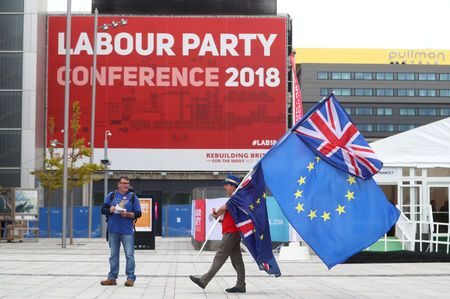
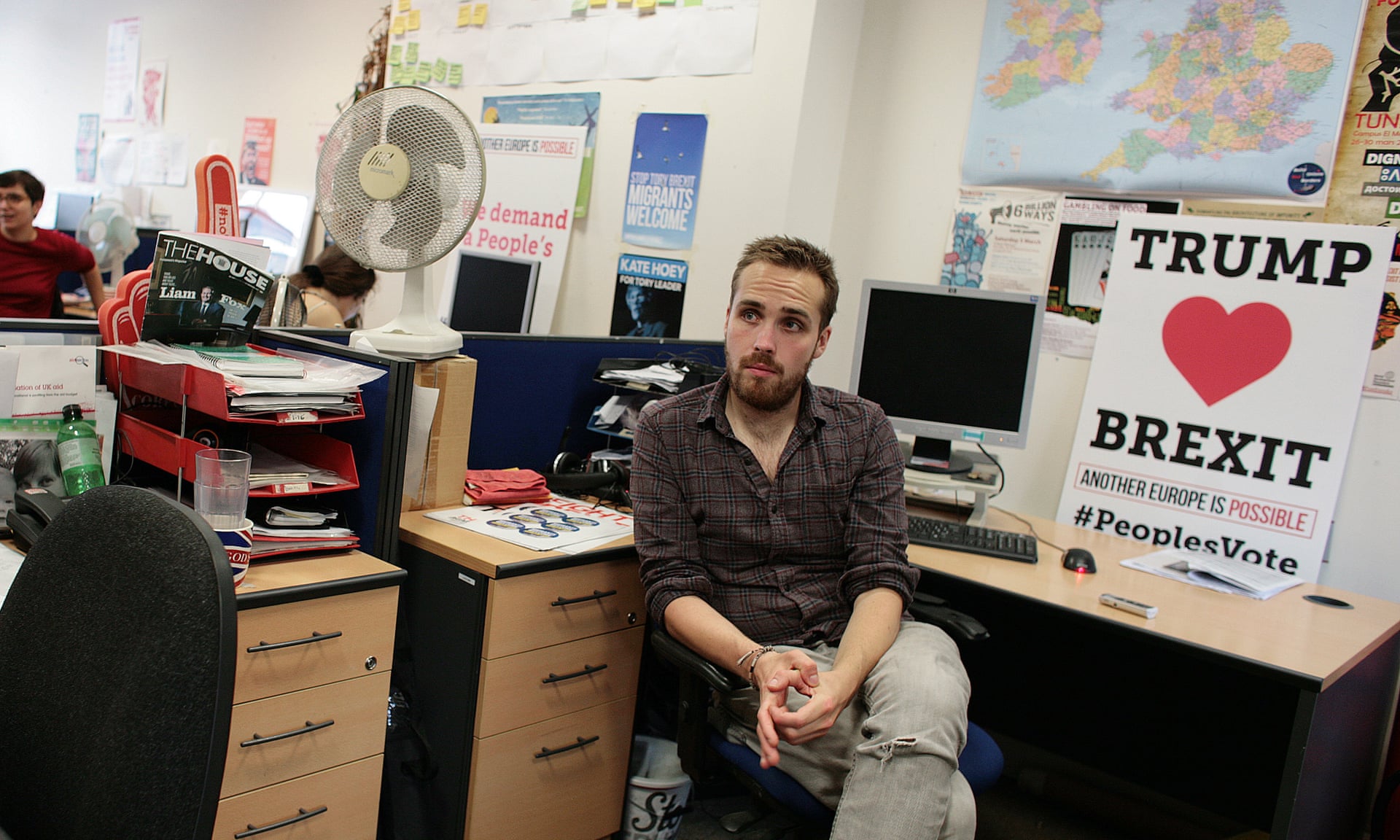
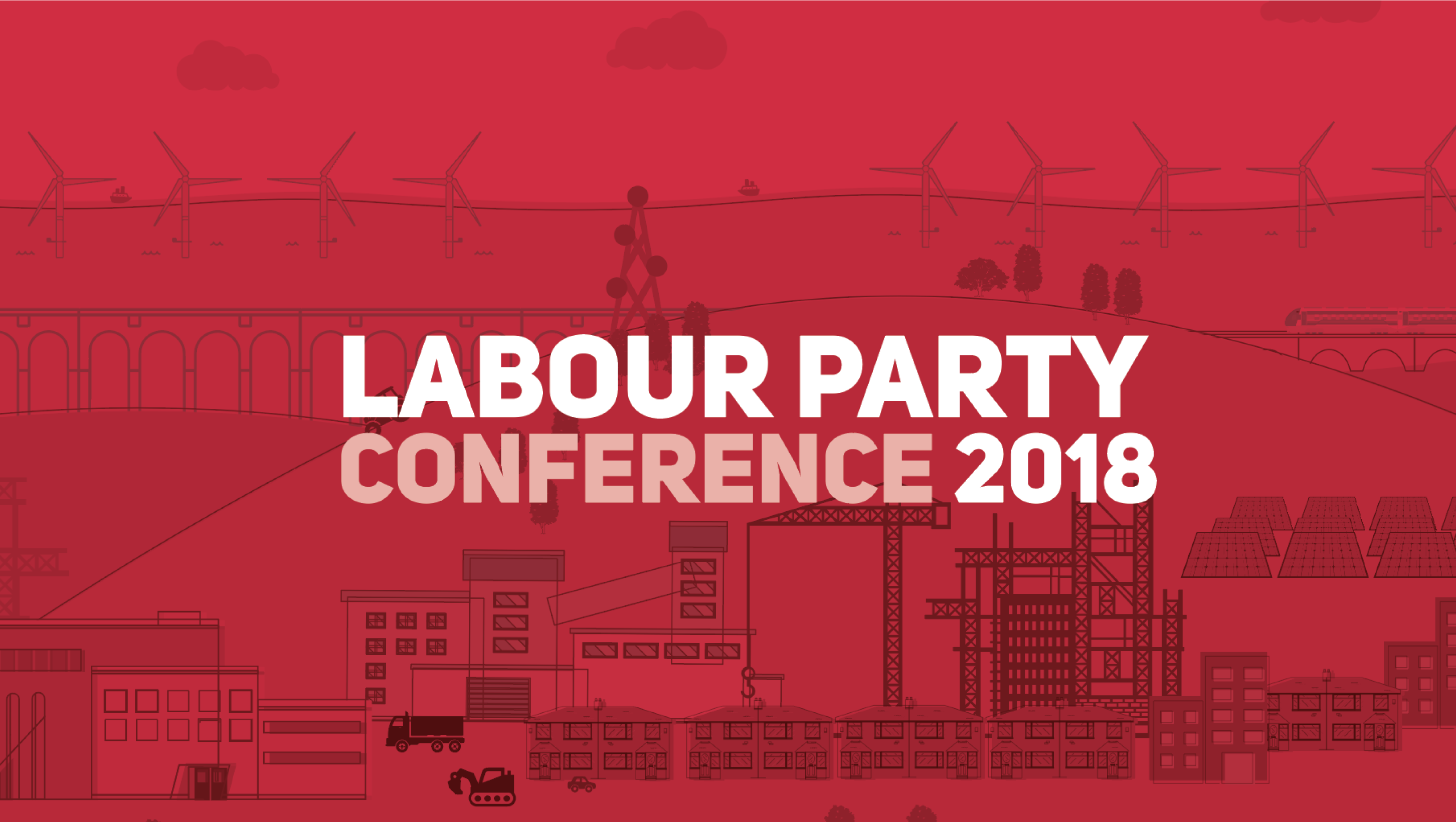

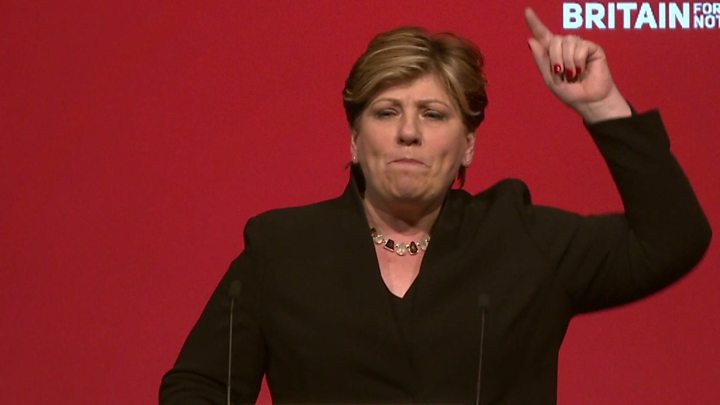
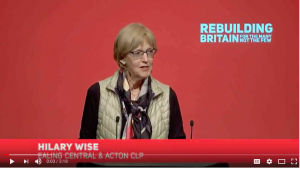 Wolfson was, however, less than “welcoming” when Hilary Wise from Ealing and Acton Central CLP spoke passionately about the anti-Semitism smear campaign (
Wolfson was, however, less than “welcoming” when Hilary Wise from Ealing and Acton Central CLP spoke passionately about the anti-Semitism smear campaign (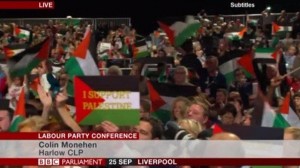 According to Asa Winstanley
According to Asa Winstanley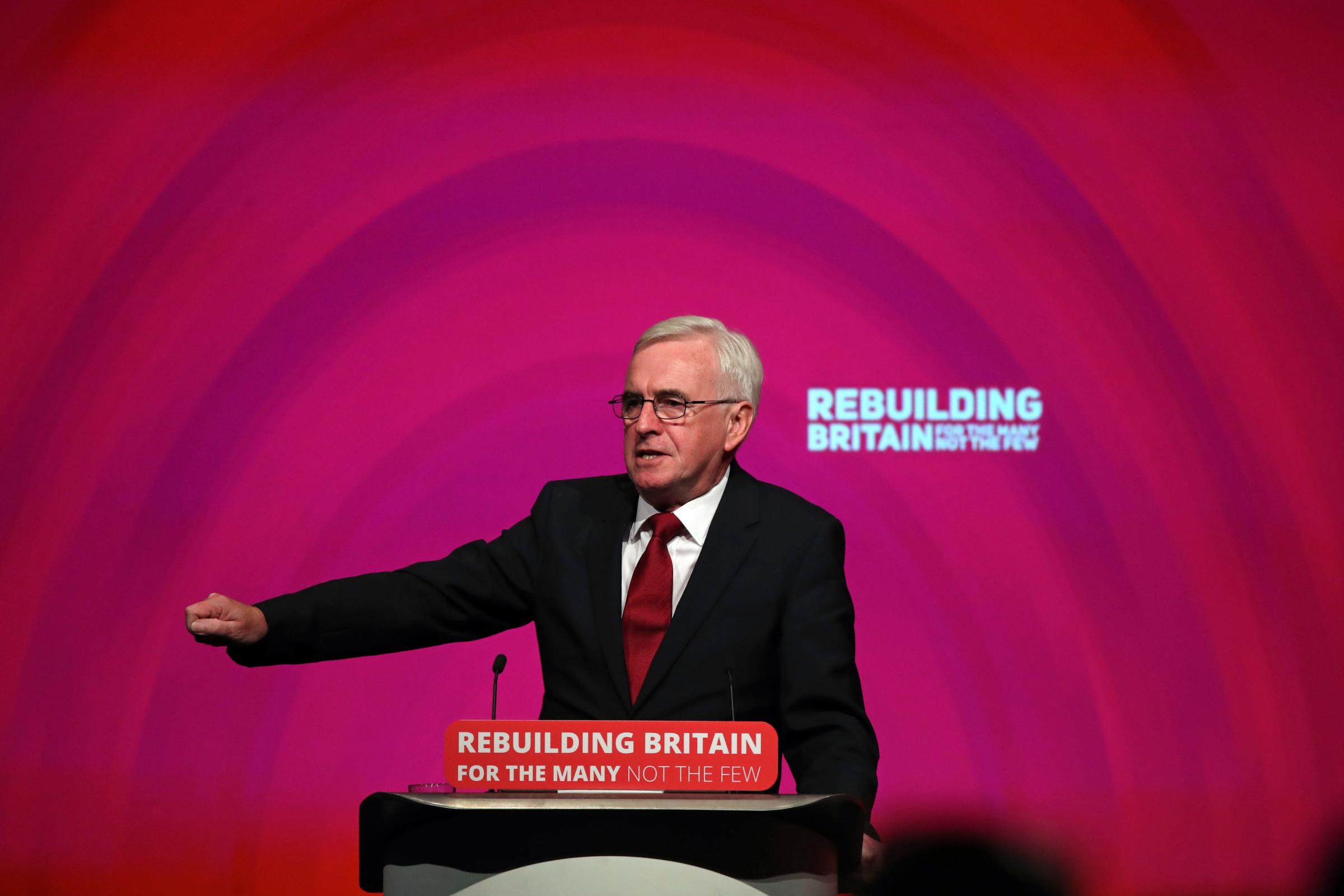
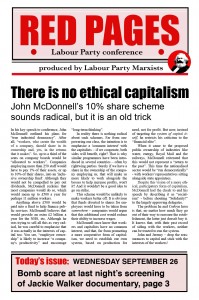 Red Pages, Wednesday September 26 – download
Red Pages, Wednesday September 26 – download 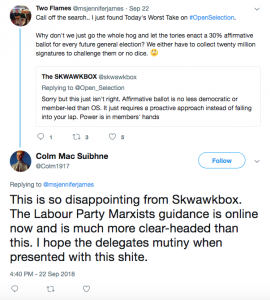 In the end, none of it happened. Supporters of the pro-Zionist Jewish Labour Movement and other rightwingers kept to themselves and made no attempt to engage delegates and visitors. We also received markedly less abuse this year compared to the 2017 conference in Brighton. Last year, our Labour Party Marxists front-page article – ‘
In the end, none of it happened. Supporters of the pro-Zionist Jewish Labour Movement and other rightwingers kept to themselves and made no attempt to engage delegates and visitors. We also received markedly less abuse this year compared to the 2017 conference in Brighton. Last year, our Labour Party Marxists front-page article – ‘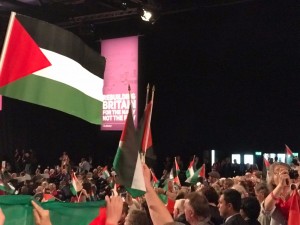 We got a few quietly huffed comments along the lines of ‘Don’t you know that’s anti-Semitic?’ But that’s about it. While the right has been incredibly successful with their smear campaign in the mainstream media, that kind of bubble bursts pretty quickly once you come to con- ference. Party delegates are usually among the most active Labour members – they know from first-hand experience that the party is not riddled with anti-Semites. It seemed as though every other delegate or conference visitor had swapped their official lanyard (featuring the logo of the rightwing Usdaw union) with that handed out by the Palestine Solidarity Campaign.
We got a few quietly huffed comments along the lines of ‘Don’t you know that’s anti-Semitic?’ But that’s about it. While the right has been incredibly successful with their smear campaign in the mainstream media, that kind of bubble bursts pretty quickly once you come to con- ference. Party delegates are usually among the most active Labour members – they know from first-hand experience that the party is not riddled with anti-Semites. It seemed as though every other delegate or conference visitor had swapped their official lanyard (featuring the logo of the rightwing Usdaw union) with that handed out by the Palestine Solidarity Campaign.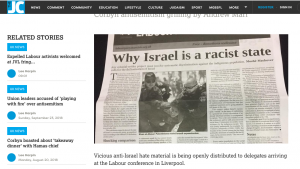 Clearly, the civil war is far from over and the smear campaign in the media continues unabated. For example, the right has been busy fingering comrade Machover and LPM: The Jewish Chronicle shouts that we were distributing “vicious anti-Israel hate material, Breitbart calls it an “inflammatory article”, while The Times of Israel complains, wrongly, that comrade Machover was “comparing Israel to Nazis”.
Clearly, the civil war is far from over and the smear campaign in the media continues unabated. For example, the right has been busy fingering comrade Machover and LPM: The Jewish Chronicle shouts that we were distributing “vicious anti-Israel hate material, Breitbart calls it an “inflammatory article”, while The Times of Israel complains, wrongly, that comrade Machover was “comparing Israel to Nazis”.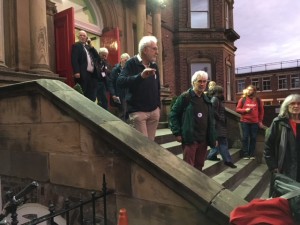 Last night’s film preview of the new documentary, ‘The political
lynching of Jackie Walker’, had to be stopped a few minutes in.
After an anonymous phone call (“there are two bombs in the
building that will kill many people”), all 150 visitors had to evacu
ate Blackburn House on police orders. Of course, no bomb was
found. By the time the police gave the all-clear, the staff wanted
to go home. This hoax is almost certainly part of the campaign
by pro-Zionist forces to disrupt and intimidate the pro-Palestinian left. But, of course, this kind of cowardly behaviour will only
increase the feeling of solidarity for Jackie Walker and all the
other victims of the witch-hunt – and interest in the film. Director Jon Pullman announced outside Blackburn House that anybody who wants to show the documentary should contact him:
Last night’s film preview of the new documentary, ‘The political
lynching of Jackie Walker’, had to be stopped a few minutes in.
After an anonymous phone call (“there are two bombs in the
building that will kill many people”), all 150 visitors had to evacu
ate Blackburn House on police orders. Of course, no bomb was
found. By the time the police gave the all-clear, the staff wanted
to go home. This hoax is almost certainly part of the campaign
by pro-Zionist forces to disrupt and intimidate the pro-Palestinian left. But, of course, this kind of cowardly behaviour will only
increase the feeling of solidarity for Jackie Walker and all the
other victims of the witch-hunt – and interest in the film. Director Jon Pullman announced outside Blackburn House that anybody who wants to show the documentary should contact him: 